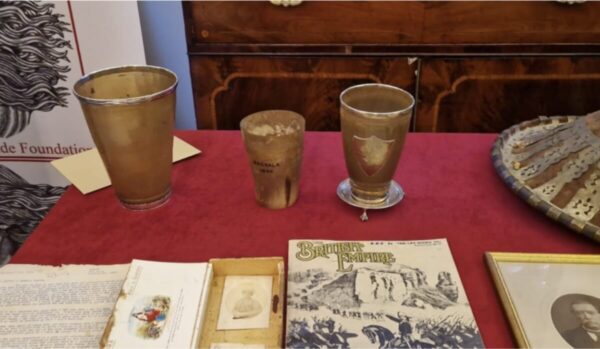Hair of Late 19-Century Ethiopian Prince Kidnapped By British Troops Over 150 Years Ago Returned By UK to African Nation’s Ambassador and Accepted as ‘Signal’ of ‘Restitution’
Hair from an Ethiopian prince was given back to ambassadors of his home country in London, England, last week.
The lock of Prince Alemayehu’s hair was returned to Ethiopia’s ambassador to the U.K. Teferi Melesse Desta, during a ceremony on Thursday, according to a Sep. 22 statement by Ethiopia’s U.K. embassy.
“The returning of this lock of hair is a signal that restitutions can be made in a spirit of goodwill and respect, and we hope that they will inspire other restitutions to take place in the near future,” Tahir Shah of the Scheherazade Foundation, a nonprofit that aided in the return efforts, told the CBC.
According to the BBC and CBC, Prince Alemayehu was seized by British troops when he was only an adolescent as they attacked his father’s fortress in 1868. His father, Emperor Tewodros II, killed himself during the invasion, and his mother died during the journey to the UK.
Per the reports, he was put under the care of a British Army Captain at the request of Queen Victoria before he was sent to school. Alemayehu died when he was only 18 years old.
In addition to the prince’s hair, the ambassador received a shield, three silver cups, and “The Holly Tabot tablet of Medhane’Alem’,” the statement said.
“During the ceremony, Ambassador Teferi underlined the importance and implications of the returned [artifacts] and Holly Tabot to the Orthodox Church, history, and cultural development of the Ethiopian people,” the statement continued. “He also thanked The Scheherazade Foundation for their unreserved support for making the handover a reality.”
Alemayehu, a royal in the 19th century, is currently buried at St George’s Chapel in Windsor Castle. According to the BBC, Buckingham Palace previously declined to return his body to Ethiopia. Earlier this year, one of his descendants spoke out about his body remaining in the U.K. because it’s not his place of birth.
“It is very unlikely that it would be possible to exhume the remains without disturbing the resting place of a substantial number of others in the vicinity,” the palace told the outlet.
The return comes amid a recent push to return artifacts to their origin. A German museum recently announced that it will return skulls stolen from a former African colony.

